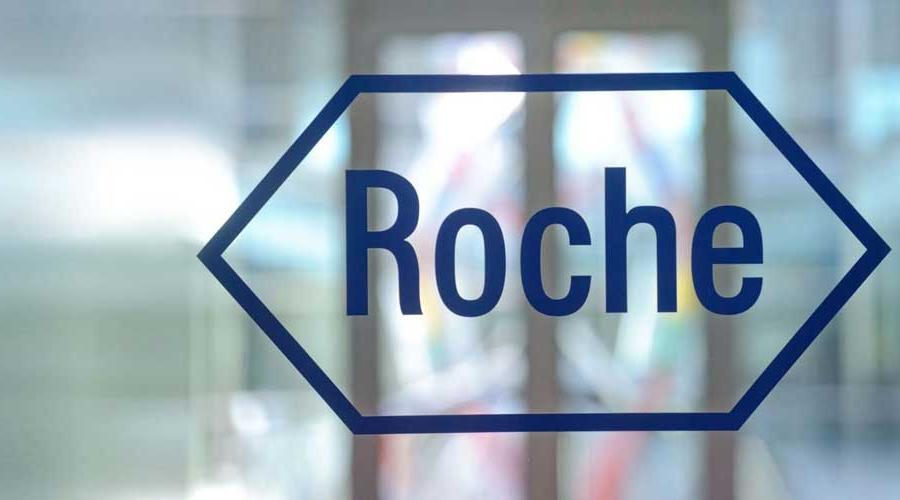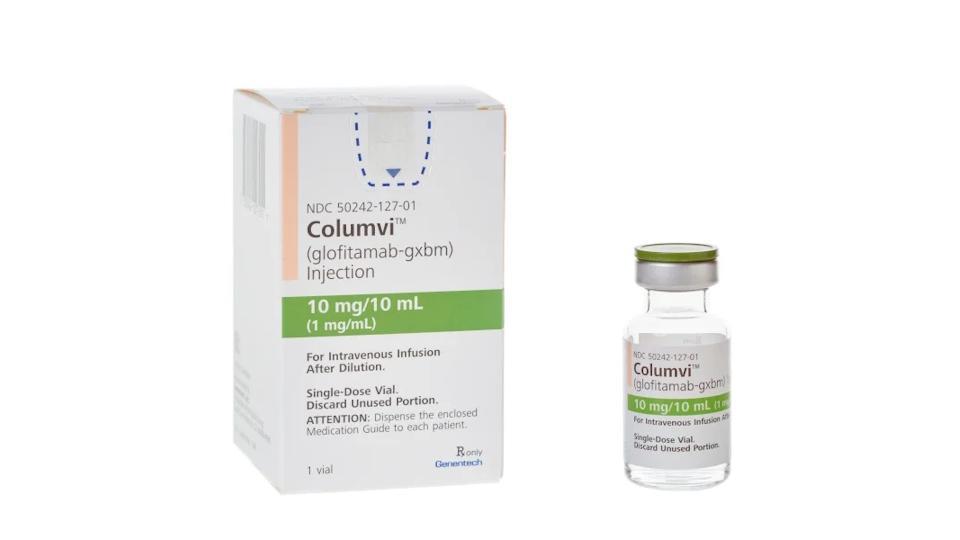Chasing AbbVie, Roche gets FDA OK for DLBCL bispecific

Roche has claimed FDA approval for its CD20xCD3 bispecific antibody Columvi as a treatment for relapsed or refractory diffuse large B-cell lymphoma (DLBCL), setting up an intriguing head-to-head with AbbVie and Genmab in the market.
Columvi (glofitamab) has been cleared as a third-line therapy for adults with DLBCL, less than a month after AbbVie and Genmab got the go-ahead for their CD20xCD3 bispecific Epkinly (epcoritamab) for a similar third-line or later indication.
Roche maintains that a key difference between the two drugs is that Columvi has been approved with a fixed duration of treatment, while Epkinly needs to be administered until the disease progresses. The company says this may allow for time off treatment that could reduce the risk of long-term side effects.
For their part, AbbVie and Genmab point to the subcutaneous administration of Epkinly versus Columvi’s intravenous delivery, as well as safety and efficacy data that they claim makes their drug the ‘best-in-class’ therapy. Roche, meanwhile, is also emphasising the duration of response seen in its trials.
The FDA has given Columvi accelerated approval based on the phase 1/2 NP30179 study, which showed that treatment with the bispecific had an overall response rate of 56%, including 43% complete responses, and a median duration of response of more than 18 months.
Epkinly’s main study revealed an ORR of 61%, 38% complete responses, and a median duration response of around 12 months.
“As an off-the-shelf, fixed-duration treatment providing durable response rates, we believe Columvi could change the way this aggressive lymphoma is treated,” said Roche’s chief medical officer, Levi Garraway.
The new drug will become a companion to the company’s CD79b-directed antibody-drug conjugate (ADC) Polivy (polatuzumab vedotin), which has been approved for previously untreated DLBCL, as well as another CD20xCD3 bispecific called Lunsumio (mosunetuzumab), approved for relapsed or refractory follicular lymphoma (FL).
Lunsumio is not as potent as Columvi, but does offer improved tolerability, making it more suitable for less aggressive forms of non-Hodgkin lymphoma (NHL).
Both Columvi and Epkinly hope to become more accessible alternatives to third-line CAR-T therapies for DLBCL, namely Novartis’ Kymriah (tisagenlecleucel), Gilead Sciences’ Yescarta (axicabtagene ciloleucel), and Bristol Myers Squibb's Breyanzi (lisocabtagene maraleucel), which have lengthy and complex manufacturing and administration procedures and require in-hospital care.
Analysts at Jefferies have said they believe Epkinly will lead the class with sales of $2.75 billion a year, with Roche’s two CD20xCD3 bispecifics making around $2 billion combined.
Also coming through the industry pipeline for third-line DLBCL are CD20xCD3 bispecifics from Regeneron and Johnson & Johnson/Xencor, which are currently in late-stage development.













